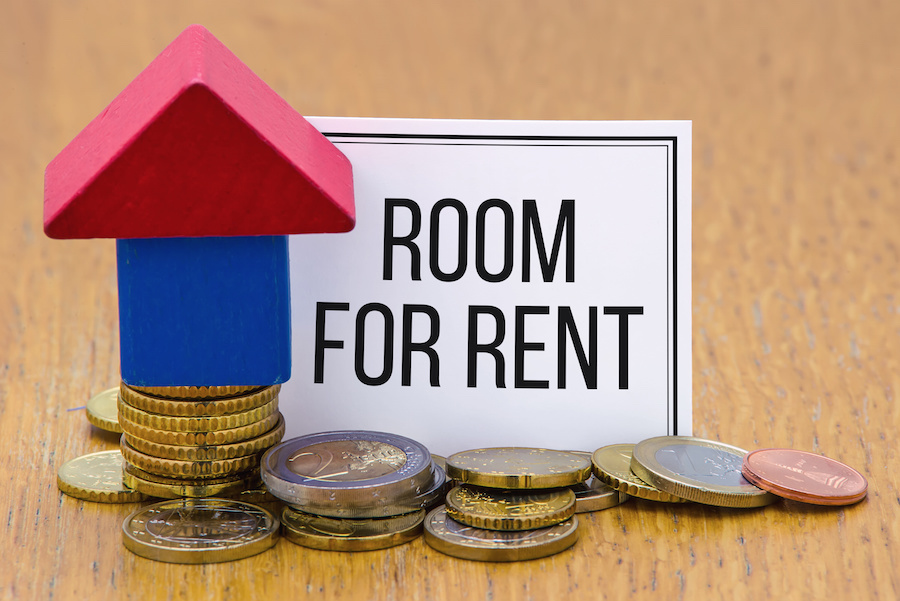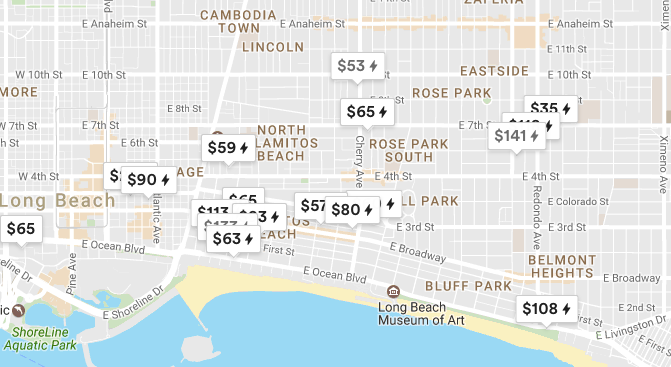
Stock photo.
With a vacancy rate in Long Beach stagnating around two percent citywide, elected officials want to explore how to regulate short term rental units to both draw in tax revenue from hosts, but also set requirements that could push currently unavailable units back into the long-term rental market.
The request came from Second District Councilwoman Jeannine Pearce who presented her colleagues with a statistical breakdown of what she called a growing issue in the city as property owners have taken units out of the long-term market in favor of utilizing sharing economy websites like Airbnb to rent those units out temporarily, and for more money.
The item was co-sponsored by council members Lena Gonzalez, Dee Andrews and Vice Mayor Rex Richardson.
Pearce said that about 1,100 units in Long Beach fall into that category—a figure she said city staff advised might be a low estimate—and noted that many of those are apartments that could be rented on annual or month-to-month leases versus for days or weeks at a time.
“The beginning of that concept [sharing economy] was ‘I have a home, and I want to share a room in my home,’” Pearce said. “Not ‘I’m going to purchase a whole building and use that only for short term rentals and not put that out on the rental market.’”
She said that of those units listed on Airbnb (it represents over 60 percent of listings in the city) and similar websites, over 70 percent are rented for 291 days annually on average.

A screen shot of some listings available in Long Beach on AirBnb.
Pearce added that single host profiles have been found to hold anywhere between two to 19 properties in the city which has led her to believe that these aren’t individuals controlling the units but companies looking to capitalize on the city’s desirability.
Long Beach currently has a ban in place on short term rentals but lacks the resources to adequately enforce its own policies. The city’s municipal code allows for single rooms to be rented, something that Pearce distinguished between in her presentation, but it requires the owner of the dwelling to live in the unit and limits the number of rented rooms to two per dwelling.
The request asks the city manager to work with the city attorney’s office to explore possible regulatory measures that could be worked into a future ordinance to oversee the short term rental market and to collect tax revenue from those stays as the city does with more traditional hotel bookings.
Possible regulations could include the current requirement for owners to live in the units they’re renting, limiting “entire-home” renting to 90 non-consecutive days per year, transient occupancy tax collection on stays under 30 days and a report on how that revenue has been used in other cities to address their housing crises.
Friendly amendments to Pearce’s original item, which could be placed in the report expected back before the council in the coming months, included the potential of continuing the ban with greater enforcement, requiring hosts to list a 24-hour contact number for affected neighbors to call if a problem arises, funding for 24-hour code enforcement officers and potential for hosts to provide parking spaces for clients
.
Members of the public spoke to the issue from a variety of positions, with some focusing on the short-term rental economy on local units available to residents of Long Beach, while others focused on the quality of life issues that have presented themselves in cases where units were rented out to people who were disruptive to neighboring property owners.
Jason Kantor, who lives on Ocean Boulevard where many units are listed, said that ever since a neighbor sold their unit to an out-of-state investor his home life has been “hellacious.” He likened the constant turnover in people renting the unit for days at a time to having to live next to a revolving frat house.
“I don’t think regulating it is the key,” Kantor said. “I think banning these short term rentals is the key.”
Brent Dooley’s parents purchased a duplex in Belmont Shore in the 1970s but have since moved out of the unit. Dooley said that while the top floor of the structure is occupied by a long-term occupant, he keeps the bottom floor open for short-term rentals and for family members who wish to visit Long Beach and not have to pay for a hotel. He said his father brings his mother who has been diagnosed with dementia back to the property because she enjoys being back in the home they occupied for so long. Dooley said the short-term rental revenue has provided an economic boost to his family that has helped with his mother’s medical bills.
“I understand some of the other aspects that people are bringing forth but I also want you to see our point of view,” Dooley said. “It is helping our family pay for my mother’s dementia care. It’s helping my family to visit the Long Beach area, to stay in our vacation home for free when we want to stay down there.”
Several California cities have crafted ordinances to regulate the industry including Sacramento, San Francisco, Malibu and Santa Monica. However, some have been taken to court due to complaints that those ordinances placed undue burden on hosts or the company itself.
In San Francisco, the company reached a deal with city regulators to implement a “One Host, One Home” policy where hosts were allowed to list only one property at a time on the company’s site. Last week, over 900 listings were dropped from the company’s site for non-compliance. Anaheim regulators have turned to turning off utilities for those hosts found to be operating without a permit from the city. Santa Monica bans rentals of less than 30 days.
A report released earlier this month showed that Los Angeles area hosts made the most income of any in the state, taking in over $260 million in 2016. San Francisco and San Diego followed LA in the report’s rankings with the state’s hosts as a group accounting for $1 billion in revenue.
Clearly the industry is a profitable one and if the city were to abandon its prohibition on short-term rentals and started collecting taxes on those stays it could tap a new source of revenue. However, the city will have to strike a balance between possible regulation and ensuring that those units currently out of the market don’t negatively impact the already strained rental situation in Long Beach.
“We want to embrace the sharing economy, we want to make sure that we uphold the public trust through some level of oversight from a public health standpoint, we want to make sure that the process does capture what resources are needed in able to fund a responsible, modest oversight process,” Richardson said. “We don’t want to stifle the shared economy.”

